Number Recognition Numbers 11–20 Worksheets for Ages 4-9
10 filtered results
-
From - To
Enhance your child's number recognition skills with our "Number Recognition Numbers 11–20 Worksheets" designed for ages 4-9. These engaging, printable worksheets offer fun and interactive activities that make learning exciting and effective. Children will practice identifying, writing, and relating numbers 11 through 20 to quantities, strengthening their numerical understanding. Each worksheet is aligned with educational standards and crafted to cater to various learning styles, ensuring every child can succeed. Perfect for home or classroom use, these resources are ideal for reinforcing essential math skills. Get started today and watch your child's confidence and proficiency in numbers soar!
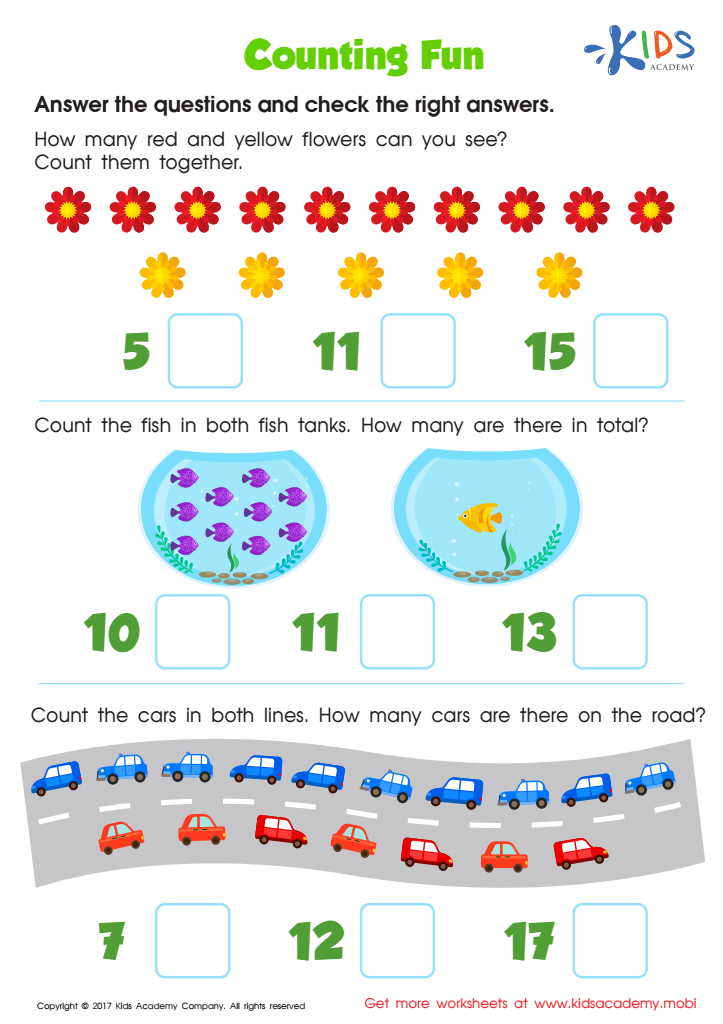

Counting Fun Worksheet
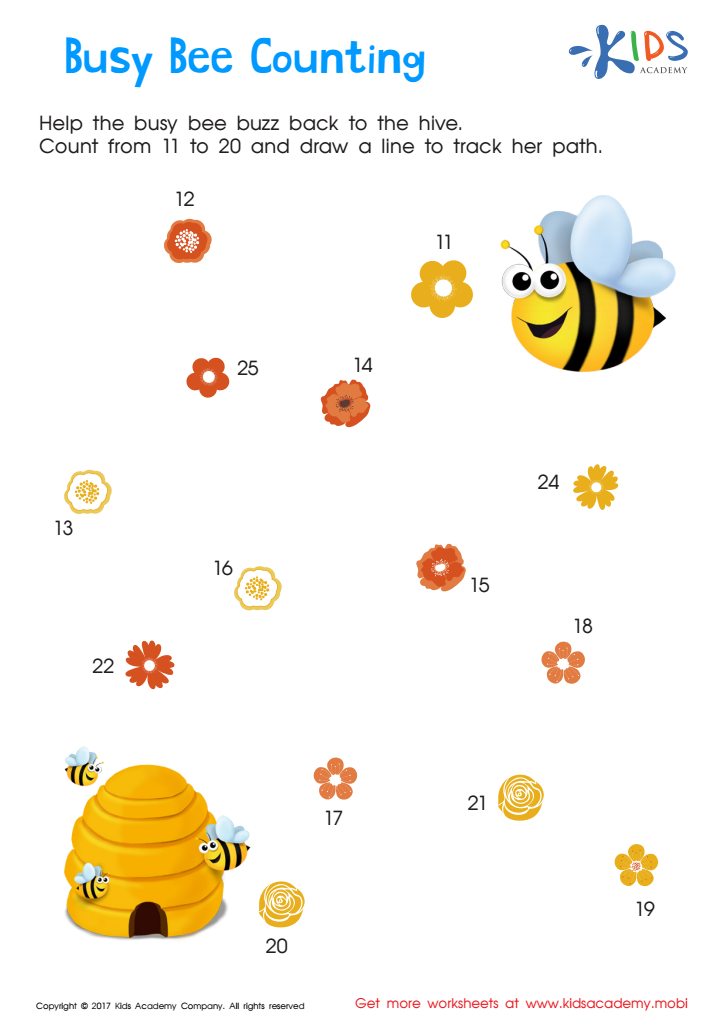

Ordering 11–20: Busy Bee Counting Worksheet
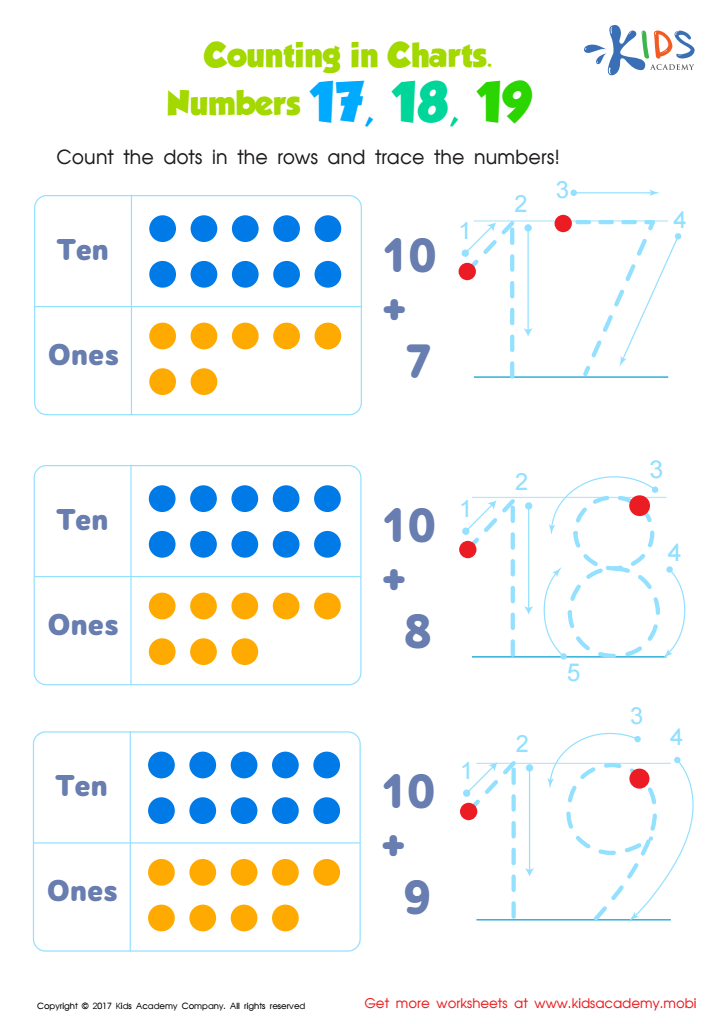

Kindergarten Number Tracing: Counting in Charts Worksheet
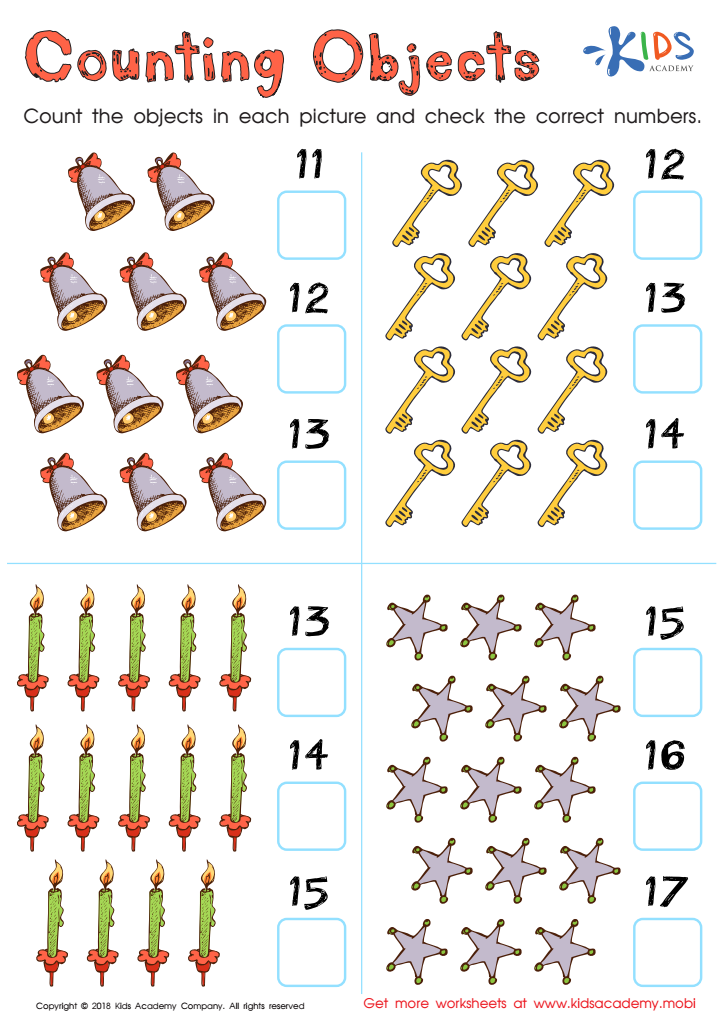

Counting Numbers Worksheet For Kindergarten
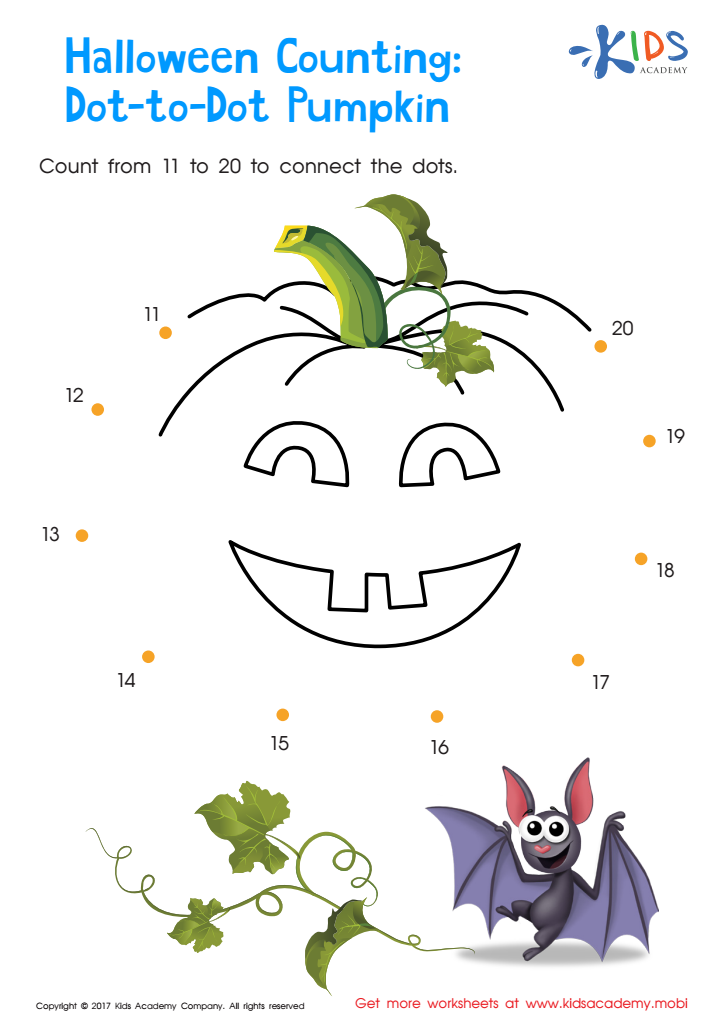

Ordering 11–20: Halloween Counting Worksheet
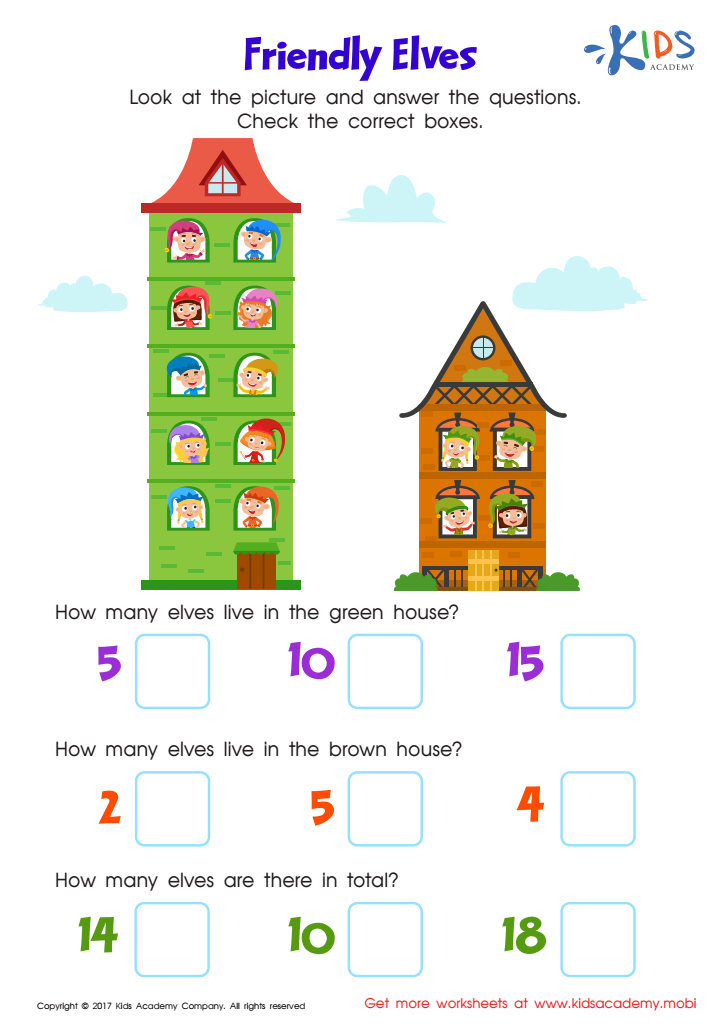

Place Value: Friendly Elves Worksheet
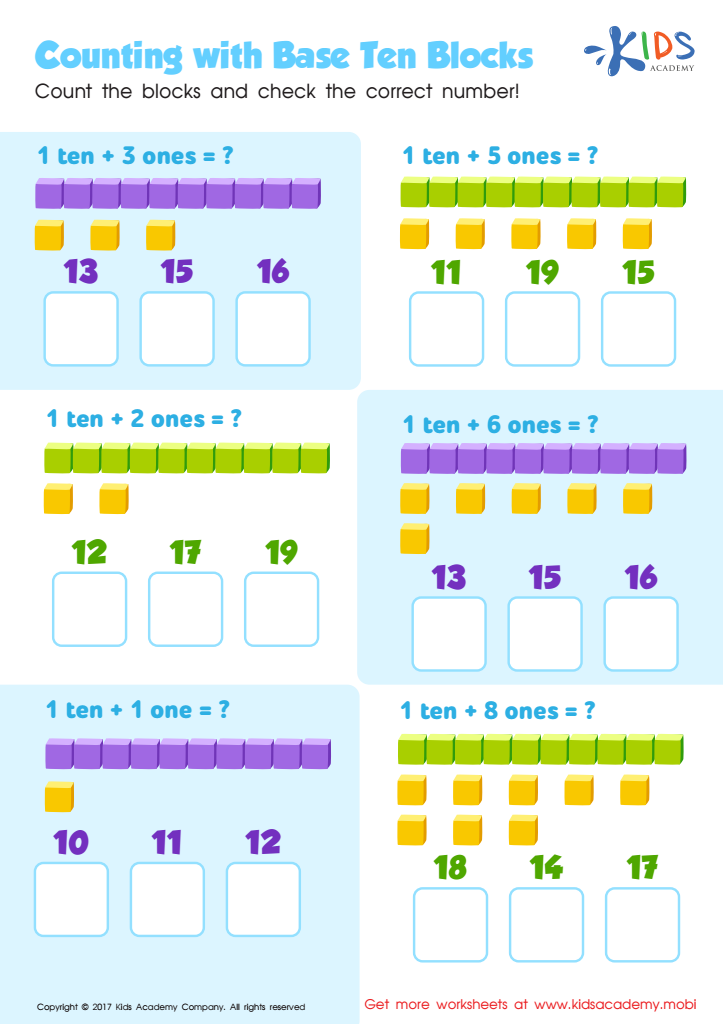

Counting with Base Ten Blocks Worksheet
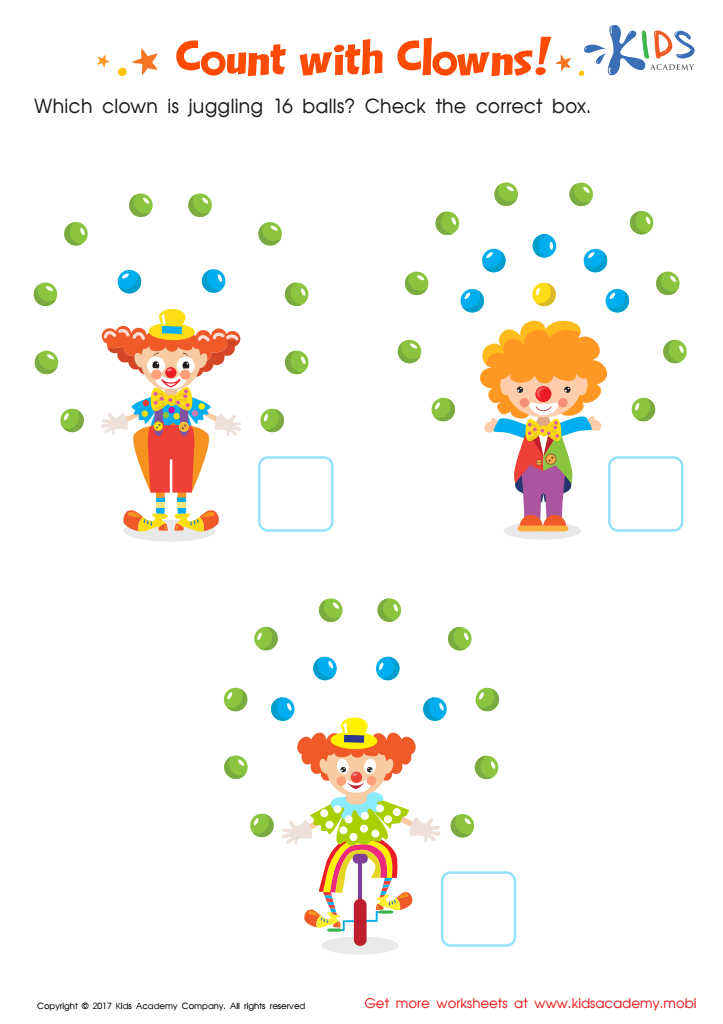

Count with Clowns Worksheet
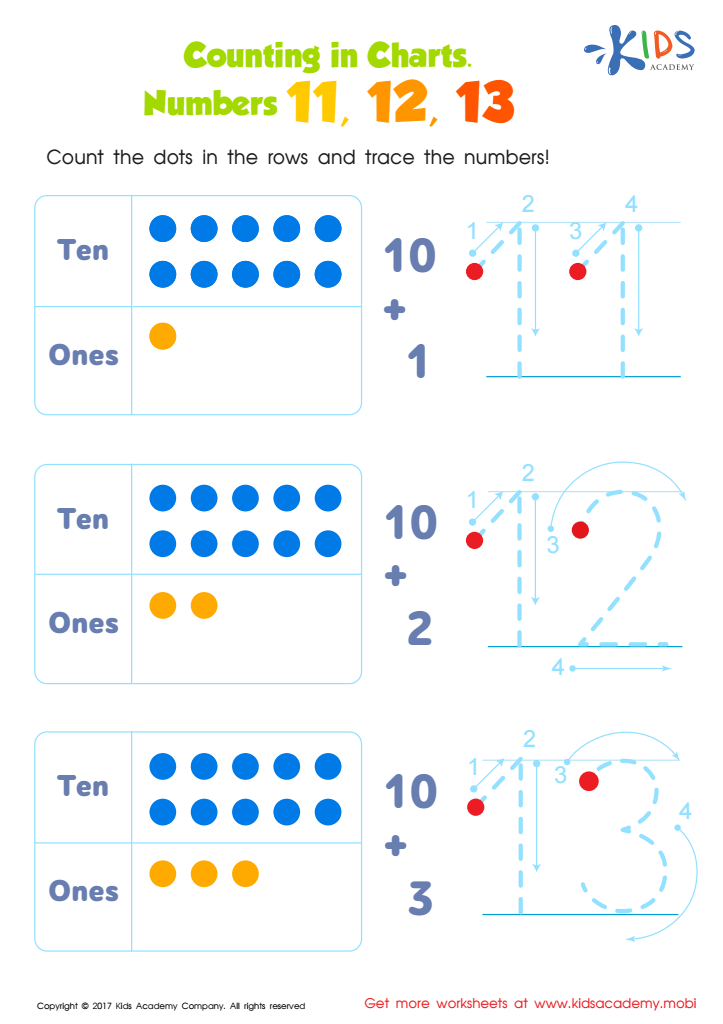

Number Tracing Worksheet For Kindergarten
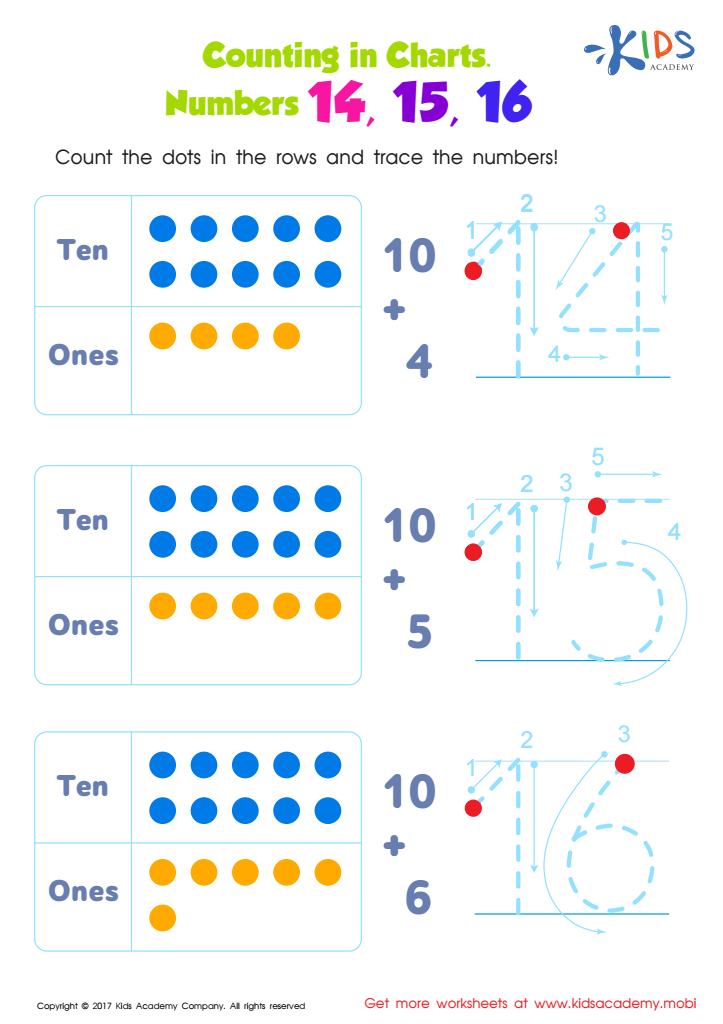

Number Tracing Worksheet
Number recognition, particularly for numbers 11–20, is crucial for children aged 4-9 as it lays a foundational understanding of mathematics. Mastery of this skill not only helps kids identify and name numbers but also boosts their confidence in handling numerical concepts.
At this developmental stage, children begin transitioning from counting objects to conceptualizing quantity, setting the stage for more complex math such as addition, subtraction, and place value. Recognizing numbers in this range enhances their ability to compare quantities, understand sequences, and develop problem-solving skills.
Additionally, number recognition supports literacy. Many early math concepts are embedded in everyday language, and recognizing these numbers allows children to engage more fully with text in math-focused stories or word problems.
Moreover, involvement from parents and teachers in cultivating these skills plays a pivotal role. By fostering an environment that encourages exploration of numbers through games, activities, and everyday interactions, adults can inspire a love for learning. This groundwork not only shapes mathematical understanding but also contributes to overall academic success, ultimately allowing children to thrive as they move into more advanced learning stages. Challenges faced in number recognition can, if unaddressed, lead to gaps in knowledge, making early intervention essential.

 Assign to My Students
Assign to My Students











